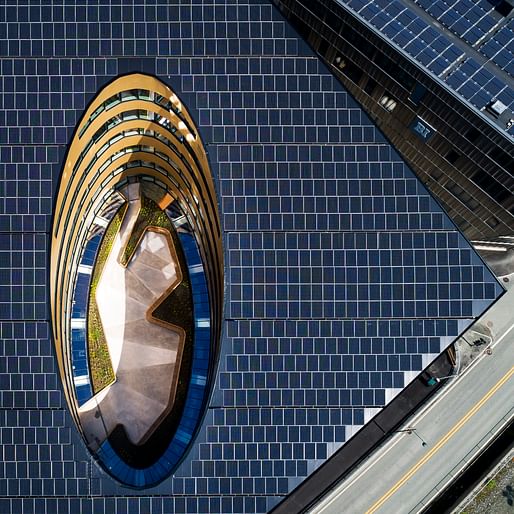

The World Economic Forum has published a briefing paper setting out its recommendations for sustainable building development. Titled Accelerating the Decarbonization of Buildings: The Net-Zero Carbon Cities Building Value Framework,” the document sets to establish a series of practical steps at the design stage to reduce operational carbon emissions.
“With over half of the world’s population living in cities and producing over 70% of carbon emissions, cities play a key role in combatting climate change,” the report reads. “Construction and the operation of buildings are responsible for 38% of global emissions, and there is an urgent need for solutions to help accelerate the decarbonization of the urban built environment to limit the global temperature rise to below 1.5°C.”
The report sets out three categories for action: invest in and combine decarbonization technologies, invest in digital technologies, and invest in city ecosystem services.
For investing in and bundling decarbonization technologies, the report recommends that designers electrify all possible building systems as opposed to fossil fuel dependence, make use of distributed power generation and solar technology, and install active and passive energy efficiency technology. As an example, the report notes the effectiveness of combining solar and geothermal technologies as a means of increasing system flexibility and resilience.
For investing in digital technologies, the report recommends installing systems that monitor energy consumption, designing for connectivity between digital technologies across a building, installing building management systems to optimize energy use, and optimizing life cycle efficiency through using BIM software during design stage.
For investing in digital technologies, the report calls on a collaboration between individual building designers and a wider city network, where buildings are equipped with distributed renewable power generation, storage, and management to be shared across a local area. Such action would enhance local energy resilience as well as facilitate wider decarbonization without disruptive central grid upgrades. A local distributed electricity system would also facilitate the installation of local infrastructure such as electric car charging.
The full report is available to download here. The World Economic Forum’s contribution comes shortly after the World Green Building Council also released a free report on sustainable building design, aimed at enabling architects to pitch sustainable design as good business to clients.
No Comments
Block this user
Are you sure you want to block this user and hide all related comments throughout the site?
Archinect
This is your first comment on Archinect. Your comment will be visible once approved.